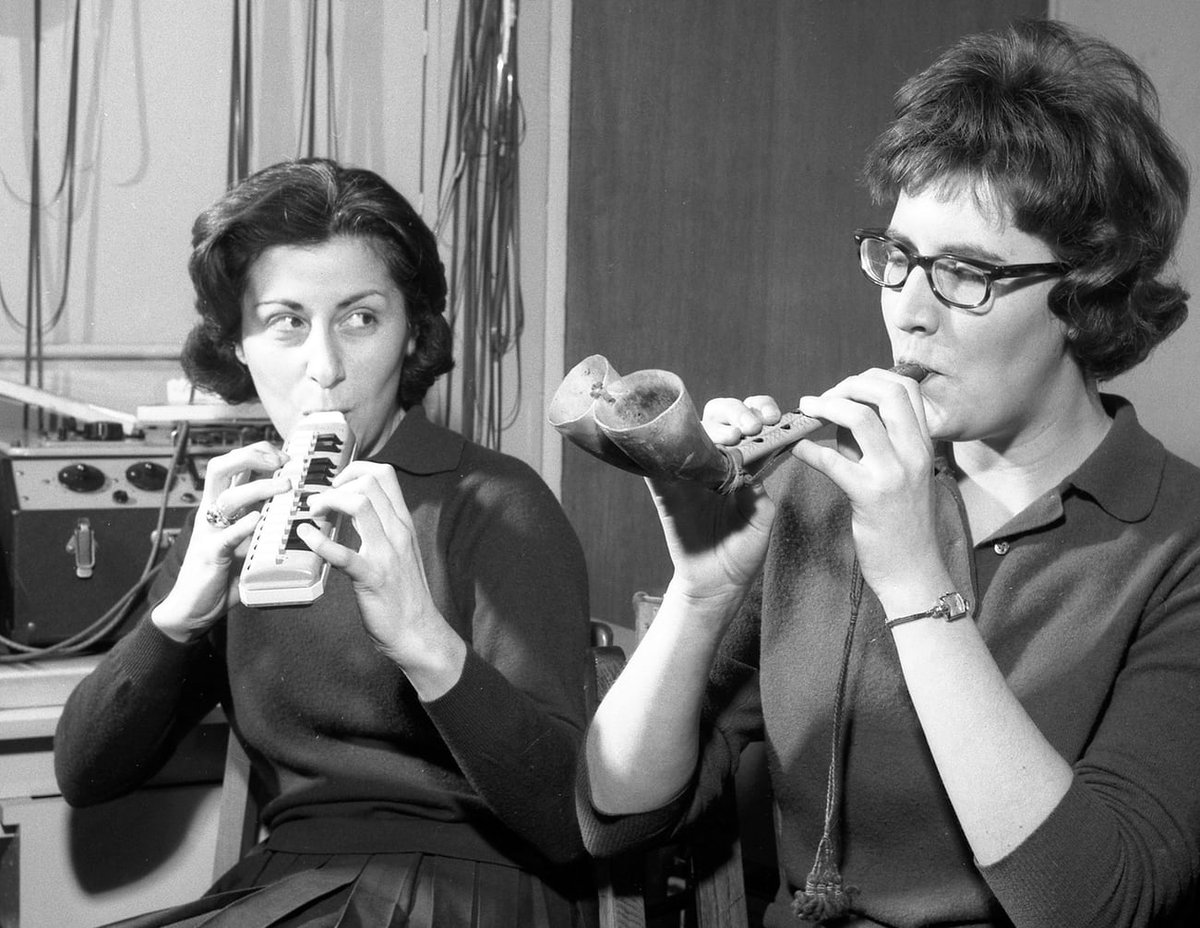The history of the BBC Radiophonic Workshop

I am a sucker for high-tech analog art: magnetic tape, early wireless, punch cards, film and vinyl, the telephone, telegraph, and typewriter, and electricity before the transformation of digital technology. Consequently, and unsurprisingly, I love the BBC Radiophonic Workshop, and was delighted to read an article on its history from The Guardian.
Radiophonics owes everything to the invention of the tape recorder. Once you could capture sound, using a workable material, you could play with it: slow it down until it thundered, feed it back on itself until it shrieked and echoed, or simply slice bits out. However extreme these experiments became, there was always something eerily familiar to the ear, because they were made from real objects or events.
The term “radiophonic” came about because these mutated everyday sounds were put to the service of radio. “It is a new sound,” said the BBC, “suggestive of emotion, sensation, mood, rather than the literal moaning of the wind or the opening of a door.” Such things are now so easily achieved with digital technology that it’s hard to grasp how laborious - and groundbreaking - this all was.
The piece, riffing on a new book by does a nice job of eschewing undue nostalgia while digging into some of the Workshop’s most famous work — Doctor Who, The Hitchhiker’s Guide to the Galaxy — while also pointing out that most of the work was on simple education programs (which nevertheless introduced whole generations to new sonic possibilities). It restores the place of the many women who came through the workshop, including the inventive Delia Derbyshire, who played a huge role even as they often couldn’t get jobs at record studios or elsewhere in the recording industry.
My only complaint: it’s too darn short. I gotta read a book or something.





Stay Connected